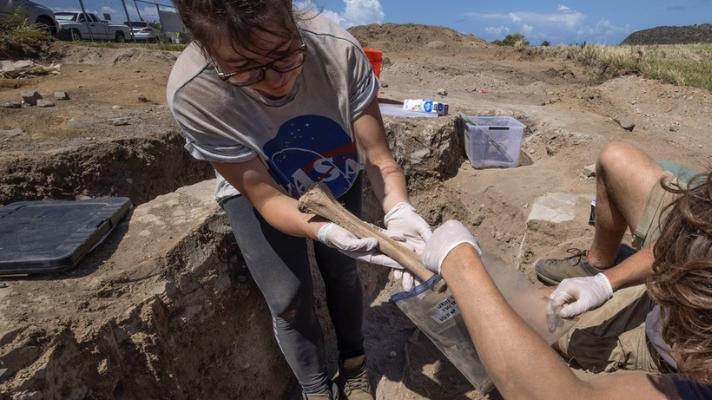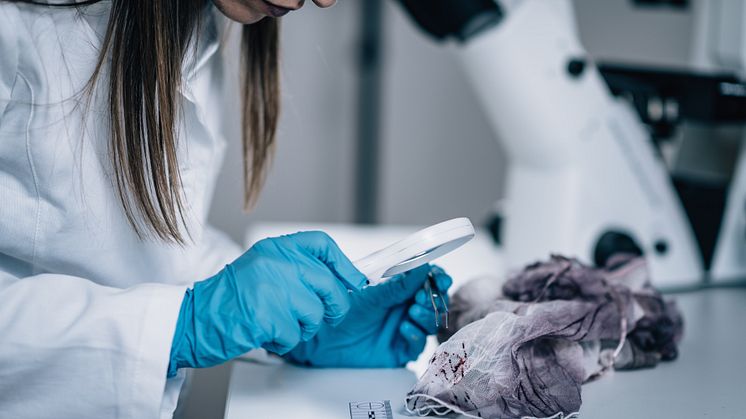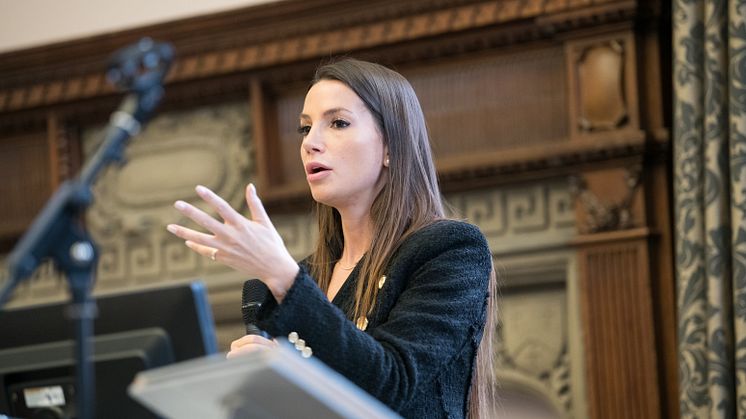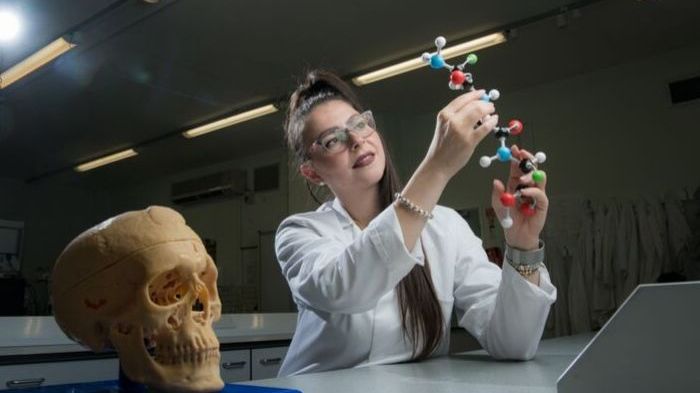
Press release -
Northumbria expert leads ground-breaking forensic study on 18th century Caribbean graveyard
The remains of skeletons found at one of the largest cemeteries for enslaved people in the Caribbean are being studied at Northumbria University.
Dr Noemi Procopio, a Senior Research Fellow in Forensic Science, was asked to join archaeologists on the Dutch Caribbean Island of St. Eustatius, after a graveyard dating back to the 18th and 19th centuries was unearthed in April of this year.
The site was discovered while archaeologists checked an area needed for expansion of an airport. The excavations are led by Dr Ruud Stelten and Alex Hinton from the St. Eustatius Center for Archaeological Research (SECAR) and have been conducted by a team of 14 people arrived from all over the world.
According to SECAR, 69 skeletons – mostly males – have been found to date, although a small number have been identified as women and children. Given the location, archaeologists believe the burial site contains the remains of more than 150 enslaved people.
Alongside scientists from several universities, including Harvard University in the United States, Dr Procopio will analyze these remains and do protein studies - known as proteomics – to discover what diseases these people might have suffered.
Proteomics enables the extraction of many proteins simultaneously from very small amounts of materials, such as a tiny fragment of bone. Through classification and verification of these proteins, proteomics can be used to understand the level of decay and survival of the organic matter in these bones, but also to potentially identify invaluable disease-specific biomarkers.
Dr Procopio said: “The discovery of this mass burial site on an island in the Caribbean is a hugely significant find – not only for archaeologists, but for scientists and historians alike. It is a project I’m very excited to be working on because it is so unique. It’s one of the biggest cemeteries for enslaved people to ever be discovered in the Caribbean.
“The bones are not that old, dating back to the 18th and 19th centuries, but they are very damaged, and it will be interesting to find out if proteins are surviving in fragments of bone in that environment. If we discover the presence of any diseases, then we can better understand how these people lived, and crucially, how they died.”
Initial analysis indicates that the remains are people of African descent, having found at least six individuals with dental modification that is a West African custom. Typically, plantation owners did not allow enslaved persons to do this. These individuals are thus most likely first-generation enslaved people who were shipped to St. Eustatius.
Several universities around the world, including Northumbria, have so far sent experts to analyze the remains and learn more about the lives of the buried individuals. Leiden University in the Netherlands will conduct stable isotope analysis to determine the peoples’ diets and whether or not they were born on the island, while Harvard will do DNA analysis to find out the origin of the people.
An important outcome of the research is scientists and historians will gain first-hand knowledge and understanding of the lives of slaves in the Caribbean. Most of what we know to date has been from the writings of colonial administrators and plantation owners, which can be biased or incomplete.
Dr Procopio was awarded £1.2 million in 2019 as part of the UK Research and Innovation (UKRI) Future Leaders Fellowship to develop her career and to tackle challenging research in the field of forensic science. With the support of this Fellowship, she became actively involved in this project and now she will look for additional funding sources to finance the upcoming laboratory analyses.
One of UKRI’s flagship schemes, the Future Leaders Fellowships is a £900 million government investment fund that is helping to establish the careers of world-leading researchers and innovators across UK academia and business. The initiative provides Fellows with the support, flexibility, and time they require to work on ambitious programmes of research.
Topics
Categories
Northumbria is a research-rich, business-focused, professional university with a global reputation for academic excellence. Find out more about us at www.northumbria.ac.uk --- Please contact our Media and Communications team at media.communications@northumbria.ac.uk with any media enquiries or interview requests ---











